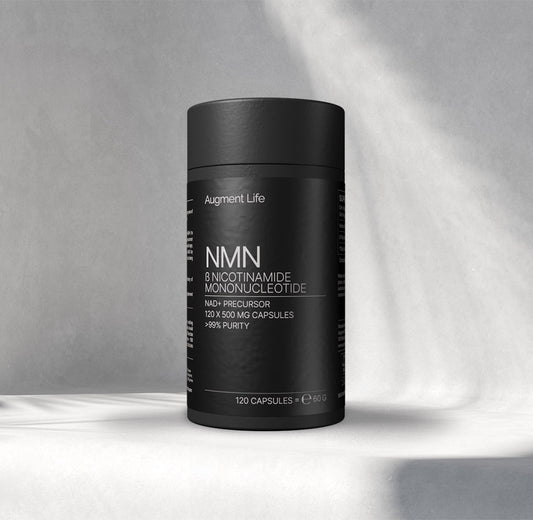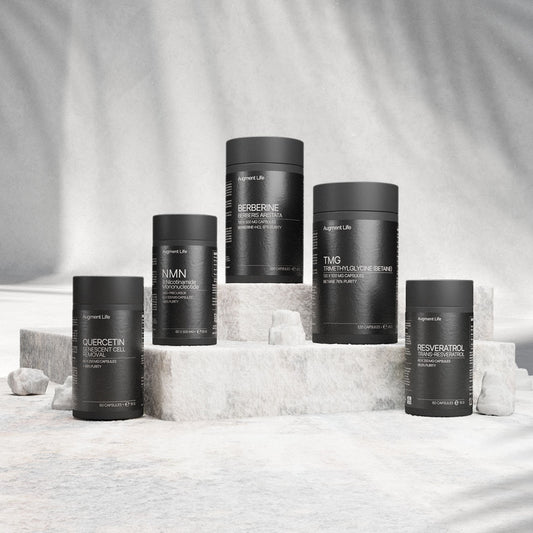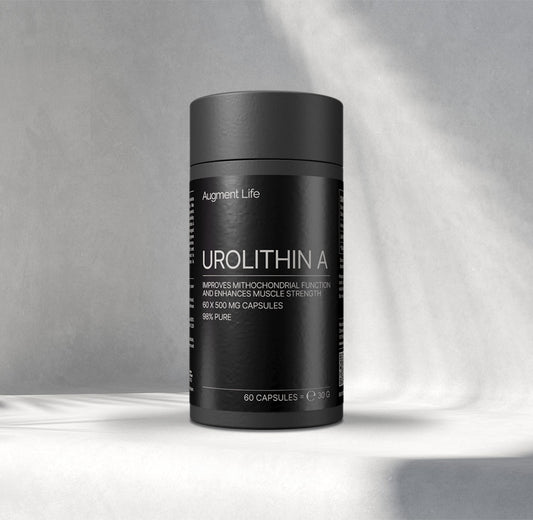Ko se staramo, naše mišice doživljajo velike spremembe, kar vodi v izgubo mišične mase, moči in fizičnih zmogljivosti. Dobra novica pa je, da lahko z ustrezno prehrano, predvsem bogato z beljakovinami, zmanjšamo te starostne posledice .
V tem članku bomo raziskali, zakaj so beljakovine bistvenega pomena za ohranjanje mišične mase in kako jih lahko med staranjem izkoristimo sebi v prid.
Vloga beljakovin pri zgradbi mišic
Beljakovine spadajo med makrohranila, kot so maščobe in ogljikovi hidrati, saj zagotavljajo energijo. Poleg tega so ključne za sintezo mišičnih beljakovin (MPS), gre za biološki proces, s katerim telo gradi nove mišične beljakovine (1, 2).
Ta proces je bistven za obnovo in regeneracijo tkiv po vadbi ali poškodbah (1). Beljakovine so pomembne za:
- Sintezo in obnovo mišic: beljakovine so ključne za regeneracijo mišičnih vlaken po vadbi, kar prispeva k njihovi rasti in krepitvi.
- Anabolično delovanje: kakovostne beljakovine, kot je sirotka, aktivirajo mTOR pot, ki spodbuja rast mišic (1, 3).
- Ravnovesje beljakovin: ustrezna količina beljakovin pomaga pri ohranjanju sinteze mišičnih beljakovin in preprečuje njihovo razgradnjo, še posebej v starosti.
Po vadbi mišice utrpijo mikro poškodbe, ki jih je treba popraviti. Beljakovine pomagajo pri regeneraciji teh vlaken in spodbujajo njihovo rast. V obdobju regeneracije po vadbi je vnos beljakovin bistven za preprečevanje izgube mišic ter za učinkovito obnovo poškodovanih vlaken.
Kaj se zgodi z mišicami, ko se staramo?
S staranjem naše telo naravno izgublja mišično maso postopoma in progresivno. Na to vpliva več dejavnikov (1, 2):
- Zmanjšana odzivnost telesa na dražljaje vadbe,
- Manj učinkovita sinteza mišičnih beljakovin,
- Upočasnjen metabolizem mišičnih beljakovin,
- Zmanjšana občutljivost starajočih se mišic na pozitivne učinke prehranskih beljakovin, kar poznamo pod pojmom anabolična odpornost (1).
Ti dejavniki prispevajo k postopni izgubi mišične mase, zmanjšani moči in fizični vzdržljivosti, kar imenujemo sarkopenija (1). Sarkopenija prizadene ljudi, starejše od 60 let, zlasti sedeče posameznike, kar vodi v znatno izgubo moči in gibljivosti. Dobra novica? Ohranjanje mišične mase po 60. letu je možno – z ustrezno skrbjo!
Sarkopenija: Kako preprečiti izgubo mišic pri starejših?
Sarkopenija prizadene vedno več starejših oseb, saj ima do 30 % ljudi, starejših od 60 let, znake tega stanja. Dobra novica pa je, da obstajajo učinkoviti načini za preprečevanje in zdravljenje (3). Ključna je kombinacija:
- Redne telesne aktivnosti,
- Zlasti vadbe za moč,
- Kvalitetne prehrane, predvsem zadostnega beljakovinskega in energijskega vnosa (1).
Redna telesna aktivnost je bistvena za ohranjanje mišične moči in zmogljivosti pri starejših. Vadba za moč pa ima dokazano še posebej velike koristi za starajoče se mišice, saj spodbuja mišično maso, moč in splošno fizično pripravljenost (1).
Po 60. letu je ustrezen vnos beljakovin ključen za ohranjanje mišične celovitosti.
Visokokakovostne beljakovine, kot jih najdemo v sirotki, vsebujejo esencialne aminokisline, ki spodbujajo sintezo mišičnih beljakovin (1, 3). Sirotka je še posebej učinkovita, saj vsebuje hitro absorbirajoče se aminokisline in visoko koncentracijo levcina, ki ima ključno vlogo pri povečanju sinteze mišičnih beljakovin (1, 3).
Več študij je poudarilo potrebo po povečanju vnosa beljakovin pri starejših odraslih, kar pomaga ohranjati mišično maso in preprečevati izgubo mišic, povezano s staranjem. Nekatere ugotovitve kažejo, da se optimalna količina beljakovin za maksimalno stimulacijo sinteze mišičnih beljakovin (MPS) s starostjo povečuje. Pri mladih odraslih (~20 let) zadostuje približno 20 g beljakovin za maksimalno stimulacijo MPS (4). Nasprotno pa pri zdravih odraslih, starejših od 70 let, odmerek 35 g zagotavlja večjo stimulacijo MPS kot odmerki 10 ali 20 g (5). Pri zdravih starejših odraslih, starejših od 70 let, vnos beljakovin nad 1,0 g/kg telesne teže na dan ščiti pred izgubo telesne mase (6).
Koliko beljakovin potrebujemo za preprečevanje izgube mišic?
Potrebe po beljakovinah se razlikujejo glede na starost, spol in raven telesne pripravljenosti. Aktivnejši ljudje lahko potrebujejo več beljakovin za podporo gradnji mišic in preprečevanje njihove izgube (2). Na splošno je dnevno priporočilo za zdrave odrasle vseh starosti 0,8 g beljakovin na kilogram telesne teže.
Po priporočilih Evropskega združenja za klinično prehrano in metabolizem (ESPEN) je treba to količino povečati pri osebah, starejših od 65 let. Zdravi odrasli naj bi zaužili med 1,0 in 1,2 g beljakovin na kilogram telesne teže. Pri odraslih, starejših od 65 let, ki so izpostavljeni tveganju za sarkopenijo ali redno telovadijo, se ta vrednost lahko poveča na 1,2–1,5 g (1).
Poleg tega ESPEN spodbuja redno telesno dejavnost med starejšimi odraslimi za izboljšanje zdravja mišic.
Povezava med vnosom beljakovin in mišično funkcijo pri starejših odraslih
S staranjem naše telo potrebuje večje količine beljakovin, zlasti zaradi anabolične odpornosti (1). Dokazi, ki jih je zagotovila strokovna skupina ESPEN, kažejo, da lahko ustrezen vnos beljakovin izboljša mišično funkcijo pri starejših odraslih (1).
Natančneje, zadosten vnos beljakovin je dokazano (1,2,3):
- Povečal moč,
- Izboljšal vzdržljivost,,
- Okrepil fizično zmogljivost,
- Zmanjšal tveganje za padce,
- Izboljšal kakovost življenja,
- Zmanjšal krhkost,
- Spodbujal samostojnost pri vsakodnevnih dejavnostih.
Ti učinki poudarjajo pomen vnosa beljakovin kot del celostnega pristopa k zdravemu staranju.
Kako beljakovine pomagajo ohranjati mišično maso v starosti?
Beljakovine ostajajo najpomembnejše hranilo za ohranjanje mišične mase v starosti. Med procesom sinteze mišičnih beljakovin (MPS) se aminokisline, ki so gradniki beljakovin, vgrajujejo v mišična vlakna. To spodbuja regeneracijo in prilagoditev mišic, kar dolgoročno vodi do večje mišične mase in moči.
Če se sprašujete: Ali potrebujete več beljakovin za gradnjo mišic, ko se starate?
Odgovor je da! Vaše telo potrebuje več beljakovin za boj proti izgubi mišic in izboljšanje okrevanja.
Glavni prehranski viri beljakovin
Veliko količino beljakovin lahko pridobite s svojo prehrano. Tukaj je seznam glavnih živil, bogatih z beljakovinami (7):
- Meso: Piščanec, govedina, svinjina in jagnjetina so popolni viri beljakovin z vsemi esencialnimi aminokislinami.
- Ribe in morski sadeži: Losos, tuna, sardele in kozice nudijo tudi omega-3 maščobne kisline.
- Jajca: Cenovno ugoden in popoln vir beljakovin, bogat z vitamini in minerali
- Mlečni izdelki: Mleko, sir, jogurt in sirotka so viri beljakovin visoke kvalitete.
- Stročnice: Fižol, leča, čičerika in grah so rastlinski viri beljakovin in vlaknin.
- Oreščki in semena: Mandlji, orehi, chia in lanena semena ponujajo beljakovine in zdrave maščobe.
- Polnovredna žita: Kvinoja, amarant in ovseni kosmiči poleg beljakovin vsebujejo tudi vlaknine in nutritiente.
Kombiniranje rastlinskih virov, kot so stročnice in žita, pomaga pri doseganju zadostne količine aminokislin - to je še posebej pomembno za vegetarijance in vegane.
Beljakovinski prehranski dodatki: Kako lahko pomagajo ohranjati mišično maso?
Če vnos beljakovin s prehrano ni zadosten, so beljakovinski dodatki odlična alternativa. Pri visokokakovostnih beljakovinah, kot je sirotkine beljakovine, je priporočena dnevna količina od 20 g do 40 g (8).
Augment Life ponuja različne prehranske dodatke, ki zagotavljajo esencialne aminokisline, podpirajo obnovo mišic ter izboljšujejo splošno mišično moč in okrevanje:
Beljakovinski dodatki so idealni tudi za tiste, ki težko zaužijejo dovolj beljakovin s hrano.
Preberite več o beljakovinskih in kreatinskih dodatkih tukaj:
- Pomen uživanja beljakovin – koliko jih potrebujemo in zakaj?
- Najboljši načini za absorpcijo kreatina.
Zaključek: Beljakovine in njihov pomen za dolgoživost mišic
Za ohranjanje zdravja mišic skozi leta je ključno, da se osredotočite na ustrezen vnos beljakovin. Poleg tega so beljakovinski dodatki odličen pripomoček za boj proti sarkopeniji in zagotavljanje, da vaše mišice ostanejo močne in funkcionalne.
Prilagajanje prehrane skozi življenje in vključevanje visokokakovostnih virov beljakovin je pomemben korak k ohranjanju dolgoživosti mišic in izboljšanju kakovosti življenja.
Končni nasveti:
- Vlagajte v vadbo za moč, da ohranite mišice aktivne.
- Povečajte vnos visokokakovostnih beljakovin, kot so tiste v sirotki.
- Razmislite o beljakovinskih dodatkih, da zagotovite, da dosežete dnevne potrebe po beljakovinah.
Vedno se posvetujte s strokovnjakom, da prilagodite odmerek dodatkov svojim potrebam. Tako boste varno uživali vse koristi, ki jih ponuja dopolnjevanje prehrane. S temi ukrepi bodo vaše mišice ostale močne in zdrave, ne glede na vašo starost!
Viri literature:
- Deutz NE, Bauer JM, Barazzoni R, et al. Protein intake and exercise for optimal muscle function with aging: recommendations from the ESPEN Expert Group. Clin Nutr. 2014;33(6):929-936. https://doi.org/10.1016/j.clnu.2014.04.007
- Putra C, Konow N, Gage M, York CG, Mangano KM. Protein Source and Muscle Health in Older Adults: A Literature Review. Nutrients. 2021;13(3):743. Published 2021 Feb 26. https://doi.org/10.3390/nu13030743
- Rogeri PS, Zanella R Jr, Martins GL, et al. Strategies to Prevent Sarcopenia in the Aging Process: Role of Protein Intake and Exercise. Nutrients. 2021;14(1):52. Published 2021 Dec 23. https://doi.org/10.3390/nu14010052
- Witard OC, Jackman SR, Breen L, Smith K, Selby A, Tipton KD. Myofibrillar muscle protein synthesis rates subsequent to a meal in response to increasing doses of whey protein at rest and after resistance exercise. Am J Clin Nutr. 2014;99(1):86-95. https://doi.org/10.3945/ajcn.112.055517
- Pennings B, Groen B, de Lange A, et al. Amino acid absorption and subsequent muscle protein accretion following graded intakes of whey protein in elderly men. Am J Physiol Endocrinol Metab. 2012;302(8):E992-E999. https://doi.org/10.1152/ajpendo.00517.2011
- Gray-Donald K, St-Arnaud-McKenzie D, Gaudreau P, Morais JA, Shatenstein B, Payette H. Protein intake protects against weight loss in healthy community-dwelling older adults. J Nutr. 2014;144(3):321-326. https://doi.org/10.3945/jn.113.184705
- British Nutrition Foundation, Protein. 2024. Available at: https://www.nutrition.org.uk/nutritional-information/protein
- Jäger R, Kerksick CM, Campbell BI, et al. International Society of Sports Nutrition Position Stand: protein and exercise. J Int Soc Sports Nutr. 2017;14:20. Published 2017 Jun 20. https://doi.org/10.1186/s12970-017-0177-8












